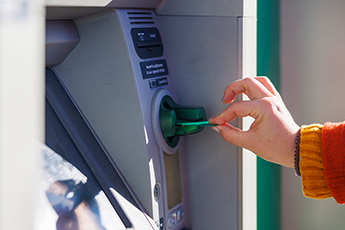In 1762, Lawrence Childs, a British banker and a landowner in the American colonies, wrote what is believed to be the first printed check in the United States, marking a significant leap forward in the way people conducted financial transactions. This innovation helped pave the way for checks to become a cornerstone of commerce, offering a secure and reliable means to transfer funds. However, despite their once vital role in the financial system, checks are rapidly becoming relics of the past. Target has added its name to the growing list of national retailers saying goodbye to personal checks as of July. To date, Gap, Old Navy, Athleta, Whole Foods, and Aldi have all banned the use of checks as well, citing low usage, high processing costs, and rising fraud as reasons for their departure from this centuries-old payment method.The Shift Away from Checks There are several main factors that have driven large retailers to stop accepting checks as payments. Here are the biggest reasons:
- Low Usage. Check usage in the US dropped by nearly 50% between 2015 and 2021, according to the Federal Reserve. Currently, checks only represent 3% of payment transactions.
- High Processing Costs. Businesses have to pay anywhere from $1.01 to $2.00 to process a check, compared to the median range of $0.26 to $0.50 to initiate and receive an ACH payment, according to a report by the Association for Financial Professionals. "Checks probably have the highest labor cost associated with them," the report’s authors wrote. "Advances in technology surrounding the use of checks often offset the value in the cost of labor to produce them."
- Fraud Trends. Check fraud cases nearly doubled from 2021 to 2022, according to the Financial Crimes Enforcement Network. “Anyone with graphics software and a high-quality printer can readily turn out counterfeit checks,” the Atlanta Fed writes. Check fraud can become costly for businesses that try to cash fraudulent checks, in the form of “returned check fees” or “chargebacks”. While checks are not as common as they once were, for a small business to pay a fee for a sale they thought they were making, plus losing their merchandise, this becomes a painful cost of accepting checks as a form of payment.

Source: https://theconversation.com/target-just-became-the-latest-us-retailer-to-stop-accepting-payment-by-checks-why-have-so-many-stores-given-up-on-them-234616
Why CFIs Should Keep Checks in Their OfferingsDespite the overall decline, checks remain a strategic necessity for both business and consumer transactions. Checks still hold significant sway in B2B payments, with roughly one-third of such transactions being conducted by check, particularly among small businesses paying each other or their vendors. On the consumer side, checks haven't been fully abandoned either; according to GOBankingRates, more than half of Americans wrote a check in the past year, with 17% doing so once a month, 15% a few times a month, and 4% writing more than 12 checks each month. Older adults, especially those 55 and older, are the most likely to use checks regularly.Common reasons consumers and businesses still use checks:
- Rent and real estate payments. Checks leave a reliable paper trail and can be used to pay large amounts of money that often exceed a credit card’s limits. Many renters pay their landlords by check, as do commercial businesses that are leasing warehouses, stores, or office space. Other real estate transactions, like home purchases, also utilize checks heavily.
- Service provider and contractor payments. Accepting credit cards at a customer’s home or business requires contractors to have a digital payment system set up. This frequently includes purchasing equipment, like an adapter that is plugged into their phone to accept payments, along with a subscription to a service that enables digital payments and handles invoices. Plus, there’s that pesky 3% transaction fee that small businesses like contractors usually pass on to their customers who pay by credit card. In comparison, a check is less costly for both the customer and the contractor.
- Large, one-time payments. If a customer is buying a vehicle for work or personal use, paying off a loan, or maybe purchasing new equipment, they’ll likely need to provide a down payment in a large amount. If they have sufficient funds to cover the amount due and the charge is beyond their credit card limit or could tie up their credit card for other necessary purchases, they could opt for a check.
- Gifting and donations. Checks offer a personal, formal method of donating to a charitable cause or providing gifts for special occasions. They ensure that the full amount is received without digital transaction fees, benefiting both the giver and the recipient.
While the shift away from checks is undeniable, it's clear that checks still play a crucial role in both business and consumer transactions. Large retailers may be phasing out checks, but for small businesses and certain consumer demographics, checks offer unmatched benefits such as flexibility in payment amounts, and a security advantage in specific situations. CFIs should continue to offer checks as part of their services, recognizing their enduring value to a significant portion of their customers. Balancing innovation with tradition, CFIs can ensure they meet diverse customer needs in an evolving financial landscape.




